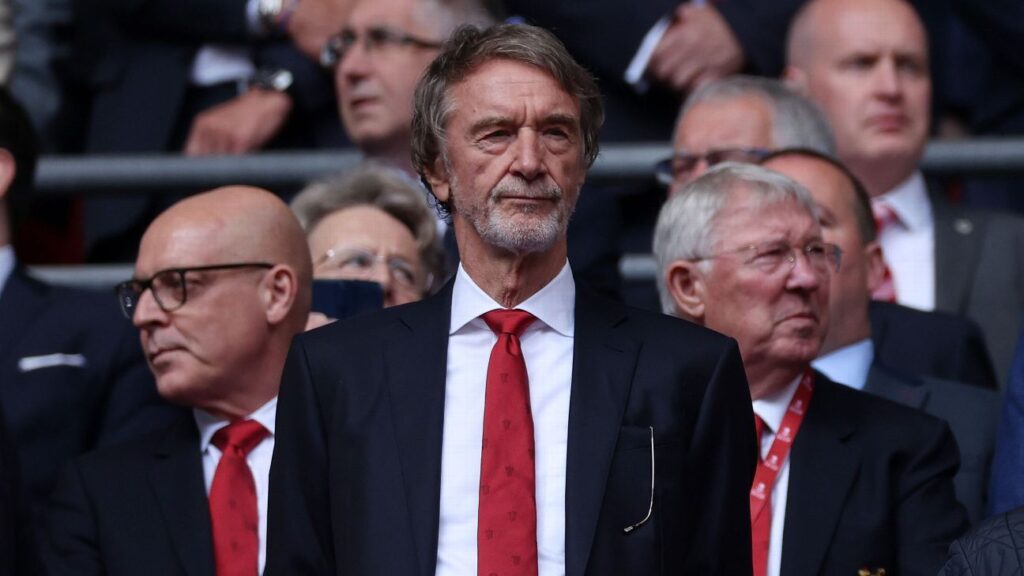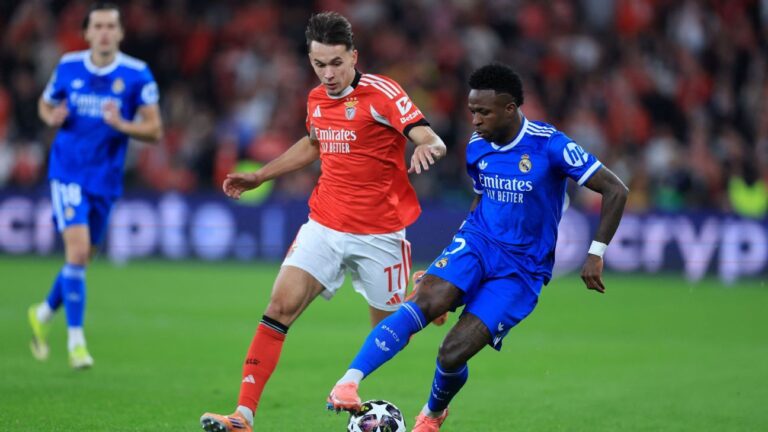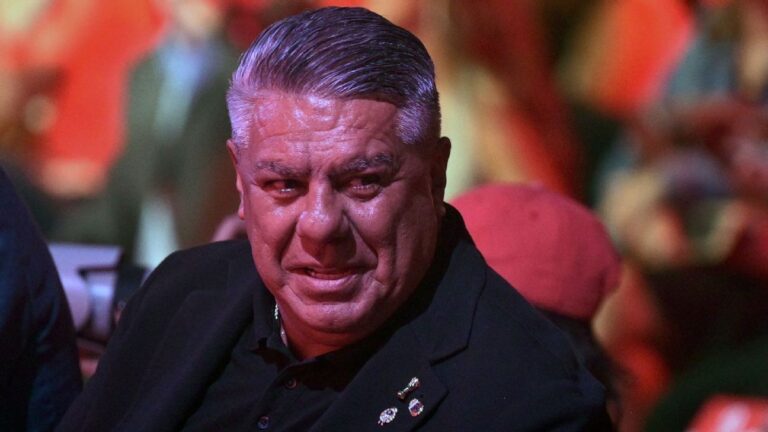Manchester United co-owner Sir Jim Ratcliffe has said that UEFA’s rules on multi-club ownership have prevented the club from signing a player from Ligue 1 side Nice.
Ratcliffe’s company INEOS bought Nice in 2019 before completing a deal to purchase a minority stake in United earlier this year.
While moving players between two clubs that share the same owners is not forbidden, Nice and United’s qualification for next season’s UEFA Europa League has raised issues around the clubs conducting business with each other in the transfer market.
UEFA rules state: “No individual or legal entity may have control or influence over more than one club participating in a UEFA club competition,” with control defined as: “Being able to exercise by any means a decisive influence in the decision-making of the club.”
Sources have told ESPN that United were interested in signing Nice defender Jean-Clair Todibo.
“They’ve said we can sell him to another Premiership club, but we can’t sell to Manchester United,” Ratcliffe, who did not name the player in question, said in an interview with Bloomberg. “But that’s not fair on the player and I don’t see what that achieves.”
Sources have told ESPN that United have decided that Erik ten Hag will stay on as manager after a season in which the club recorded its lowest ever Premier League finish but won the FA Cup.
Ratcliffe said that he is more focused on creating the right “environment” at the club, rather than personnel, as he attempts to take United back to the summit of English and European football.
“The coach isn’t the central issue at Manchester United,” the INEOS boss said. “It’s a sports club. It needs to be competitive, it needs a degree of intensity, but with a supportive side to it because you are dealing with players who are relatively young. It hasn’t had that type of environment historically.”
Ratcliffe expressed his support for Manchester City after the club launched legal action against the Premier League over Associated Party Transaction rules (APT).
The Premier League’s APT rules, originally introduced in 2021 following the Saudi Arabia-backed takeover of Newcastle United, were tightened in February in an attempt to regulate clubs signing lucrative sponsorship deals with companies linked to their owners.
“I can understand why they are challenging it,” Ratcliffe said. “You can understand why they would say that they want an open market, free market.”
The Labour Party have pledged to introduce a new football regulator should they come into power following the UK’s general election next month, which would attempt to place further controls on clubs spending to prevent financial mismanagement and protect fans interests.
Ratcliffe said that he is not in favour of the proposed legislation and also criticised the system of “anchoring” that Premier League clubs have agreed to trial next season.
A system called “Top to Bottom Anchoring” limits — or anchors — spending to a multiple of the lowest combined prize money and cash from TV rights forecast to be earned by a team.
“If you’ve got a government regulator at the end of the day they will regulate and that won’t be good,” he said.
“‘What would anchoring do?’ It would inhibit the top clubs in the Premiership. The last thing you want in the Premiership is for the top clubs in the Premiership not to be able to compete with the likes of Real Madrid, Barcelona, Bayern Munich, and PSG.”




